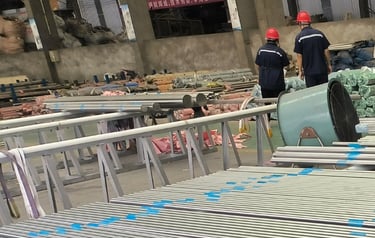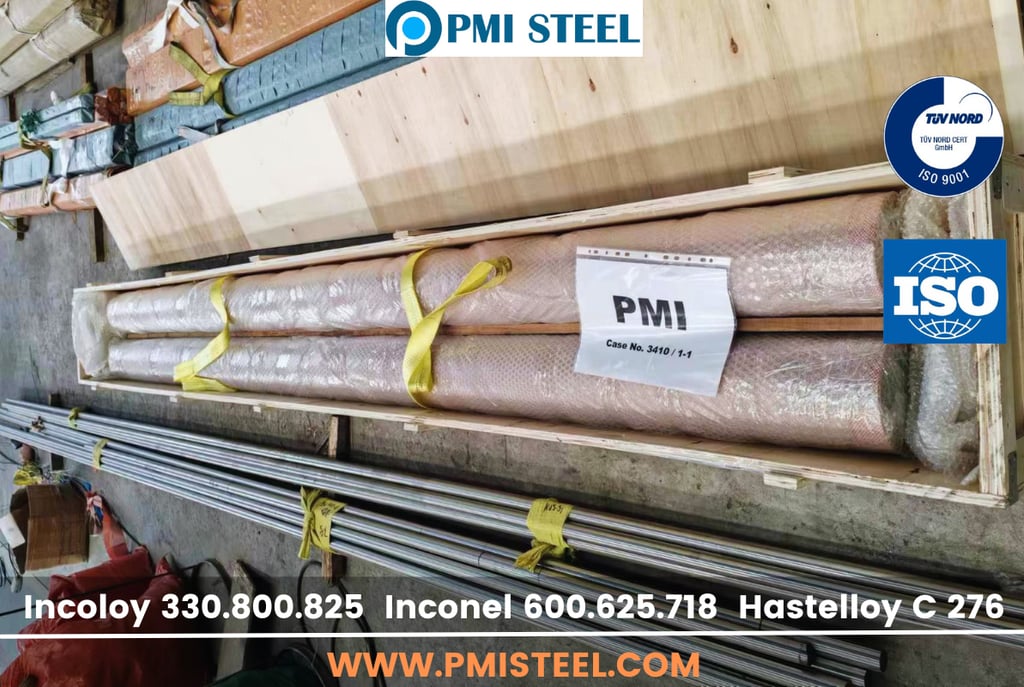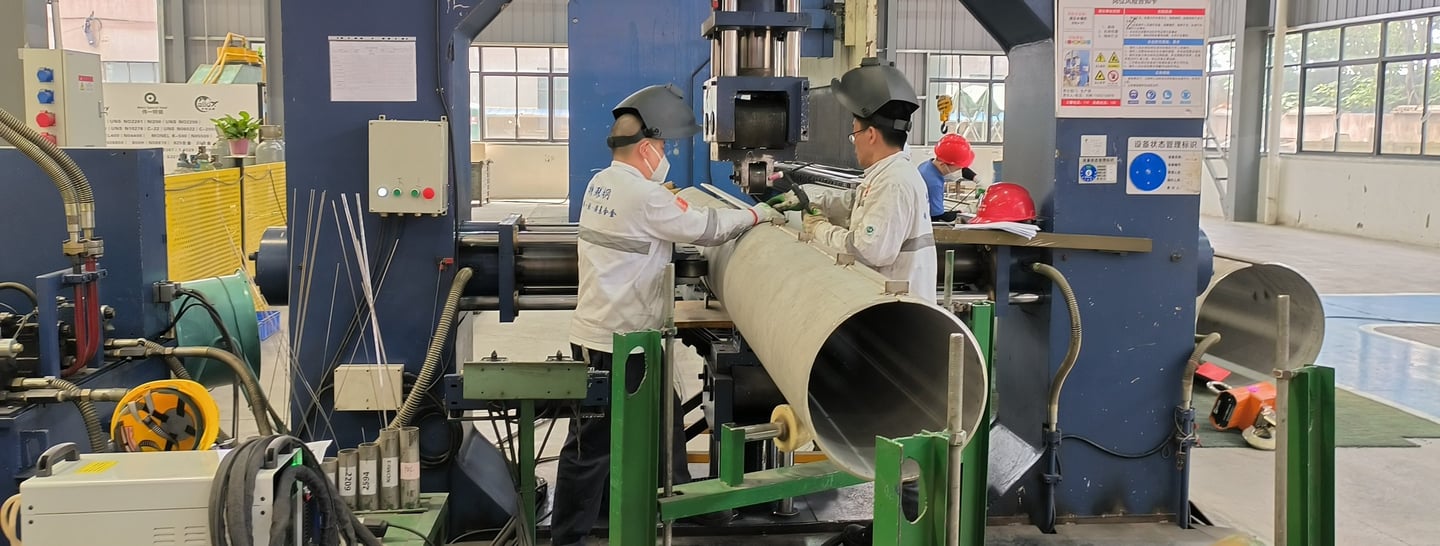High-Temperature Alloy Bar Procurement Advice: Production vs. Stock Purchasing
Overview : In the modern industrial sector, particularly in high-temperature and high-pressure environments such as aerospace, energy, and chemical industries, the demand for high-temperature alloy materials continues to rise. As a crucial material in this field, the procurement methods for high-temperature alloy bars become particularly critical. When deciding whether to procure through production or stock, purchasing entities must consider multiple factors comprehensively.
KNOW-HOWPRODUCTS NEWSINDUSTRY INSIGHT
10/2/20253 min read
PMI STEEL is a China manufacturer and exporter specialized in the production of high-temperature alloy bars, dedicated to providing high-quality nickel alloy bars.
Currently, the company primarily manufactures and sells high-temperature alloys, including Inconel 718, Inconel 600, Inconel 625, Incoloy 330, Incoloy 800, Incoloy 825, and Hastelloy C276. These alloys possess exceptional properties that meet the strong market demand for high-temperature alloys.
Characteristics and Applications of High-Temperature Alloy Bars
High-temperature alloys refer to alloy materials that maintain good mechanical properties under high temperatures and pressures, with nickel-based alloys being a representative category. These materials exhibit excellent thermal strength and oxidation resistance, making them widely applicable in fields such as aerospace engines, gas turbines, and chemical equipment. The quality and performance of high-temperature alloy bars are directly related to the safety and efficiency of equipment, necessitating careful consideration during procurement.
Analysis of Procurement Methods
When procuring high-temperature alloy bars, companies face two primary options: custom production and stock purchasing. Each method has its unique advantages and disadvantages.
1.Custom Production
When selecting a procurement model, companies must first consider their production needs and market conditions. If a company's production plan is relatively stable and there is a clear expectation regarding the specifications and quantities of alloy bars, custom production may be a more rational choice. PMI STEEL possesses strong production capabilities and flexible production lines, allowing for customization based on specific customer requirements, thereby ensuring material quality and production efficiency. Additionally, custom production helps reduce inventory costs and achieve lean production.
The advantages of this method include ensuring precise alignment of the alloy material's composition, specifications, and characteristics, which is particularly important in certain specialized applications. Furthermore, as a professional manufacturer of nickel-based alloy bars, PMI STEEL can flexibly adjust its production processes to meet specific customer demands. By eliminating the risk of excess inventory, companies can achieve better cost control and resource utilization.
2.Stock Purchasing
The fluctuations in market demand and the uncertainties of production cycles often require many companies to respond quickly to adapt to the ever-changing market environment. In such cases, stock purchasing becomes particularly significant. Moreover, stock purchasing can effectively mitigate risks and assist companies in addressing sudden order demands.
Compared to custom production, stock purchasing has a time advantage. In urgent situations where materials are needed, stock purchasing can promptly meet production requirements. PMI STEEL has established a comprehensive inventory system within the industry, capable of providing customers with various specifications and grades of nickel-based alloy bars, ensuring supply chain flexibility and timeliness. However, stock purchasing may face the risk of discrepancies between material specifications and actual requirements; if a company has strict performance requirements for materials, further evaluation may be necessary.


3. Conclusion
Choosing the appropriate procurement method involves not only considering the technical requirements of materials but also analyzing various external and internal factors.
Firstly, fluctuations in market demand may affect inventory levels, prompting companies to develop procurement strategies based on market conditions.
Secondly, the duration of production cycles, anticipated project timelines, and cash flow situations are all critical factors influencing procurement decisions.
Additionally, establishing a good cooperative relationship with suppliers can ensure access to high-quality production services and flexible supply conditions in exceptional circumstances.
Whether opting for custom production or stock purchasing, PMI STEEL, with its professional expertise and extensive experience, can provide comprehensive services to clients. The company's engineering team can offer technical support, assisting clients in selecting the best materials and solutions. Furthermore, PMI STEEL is committed to enhancing product quality, ensuring that every batch of high-temperature alloy bars dispatched meets international standards through a stringent quality control system.


High-Temperature Alloy Bar Procurement Advice: Production vs. Stock Purchasing (2)
High-Temperature Alloy Bar Procurement Advice: Production vs. Stock Purchasing (1)


Foshan PMI STEEL, a distinguished supplier of Nickel Alloy Bars, is committed to delivering top-tier products to our global clientele. Our comprehensive range of nickel alloy bars encompasses industry-leading materials such as Inconel, Incoloy, Hastelloy, and Nitronic, renowned for their superior corrosion resistance and mechanical properties, particularly in high-temperature applications. With a meticulously maintained 1200 sq.m. warehouse, we ensure the availability of standard nickel alloy products, including Alloy 600, Alloy 718, Alloy 800, and Alloy C276, to meet the diverse and time-sensitive needs of our customers.
Email : sales@pmisteel.com
Mobile: + 86 139 2726 3132
© 2020. PMI STEEL . All rights reserved.
Contact
NO.18,Xinye 4 Road, Shunde Distric, Foshan City,Guangdong P.R. China, 528300
Phone : + 86 757 2639 1388


